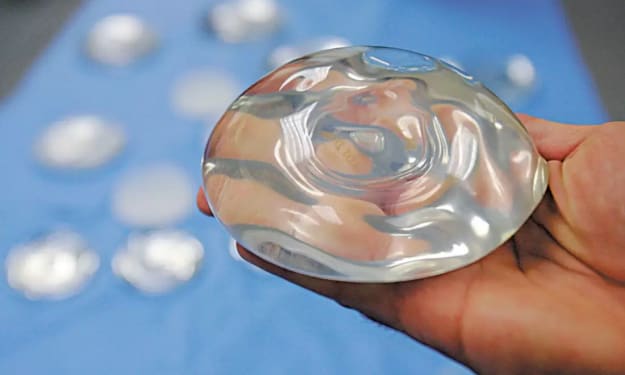Pregnancy After Tummy Tuck Surgery
Aesthetic Concerns and Maternal Health

A tummy tuck, medically known as abdominoplasty, is a popular cosmetic surgical procedure designed to flatten and contour the abdomen by removing excess skin and fat, as well as tightening the abdominal muscles. This article provides an in-depth exploration of tummy tuck surgery, covering its purpose, techniques, candidacy, recovery, and considerations for individuals considering this transformative procedure.
What is Tummy Tuck Surgery?
Tummy tuck surgery is sought after by individuals who struggle with loose skin and persistent fat deposits in the abdominal area that cannot be fully addressed through diet and exercise alone. The procedure is particularly beneficial for:
Post-Pregnancy Changes: Women who have experienced significant changes in abdominal appearance following pregnancy and childbirth.
Weight Loss: Individuals who have undergone substantial weight loss and are left with excess skin and weakened abdominal muscles.
Aging: People whose skin elasticity has decreased over time, resulting in sagging skin around the abdomen.
Techniques and Approaches
There are different types of tummy tuck procedures, each tailored to address specific concerns and achieve desired outcomes:
Traditional Tummy Tuck (Full Abdominoplasty): Involves making a horizontal incision between the hip bones, through which excess skin and fat are removed, and abdominal muscles are tightened.
Mini Tummy Tuck (Partial Abdominoplasty): Targets the lower abdomen with a smaller incision and is ideal for individuals with less extensive excess skin and muscle laxity.
Extended Tummy Tuck: Extends the incision around the hips to address excess skin and fat not only on the abdomen but also on the flanks or sides.
The choice of technique depends on factors such as the amount of excess skin and fat, the patient's anatomy, and the surgeon's expertise.
Ideal Candidates
- Ideal candidates for a tummy tuck are generally healthy individuals who:
- Have realistic expectations about the outcomes of the procedure.
- Are within a stable weight range and committed to maintaining a healthy lifestyle.
- Are bothered by excess abdominal skin and fat that do not respond to diet and exercise.
What If You Get Pregnant
Pregnancy and childbirth can significantly impact the results of tummy tuck surgery due to several physiological changes:
Abdominal Wall Stretching: During pregnancy, the abdominal muscles and skin stretch to accommodate the growing fetus. This stretching can potentially undo some of the tightening achieved through abdominoplasty, leading to a recurrence of abdominal laxity or protrusion.
Weight Gain: Pregnancy often leads to weight gain, which can affect the overall appearance of the abdomen and potentially compromise the aesthetic outcomes of tummy tuck surgery.
Skin Elasticity Changes: Hormonal changes during pregnancy can affect skin elasticity, potentially causing stretch marks or changes in skin texture that may impact the appearance of the abdomen.
Considerations for Women Who Become Pregnant
If a woman becomes pregnant after undergoing tummy tuck surgery, several considerations should be kept in mind:
Discuss with Your Surgeon: It is essential to inform your plastic surgeon about your pregnancy as soon as possible. They can provide guidance based on your specific surgical technique, healing process, and individual circumstances.
Monitoring and Follow-Up: Regular monitoring by both your obstetrician and plastic surgeon is crucial throughout pregnancy. This helps assess any changes in the abdomen and ensures appropriate care is provided.
Postpartum Planning: After childbirth, individuals who have had a tummy tuck may require additional procedures or revision surgery to restore the results achieved from the initial surgery. This could involve addressing abdominal wall laxity, excess skin, or other changes that occurred during pregnancy.
Safety and Health Considerations
While pregnancy after tummy tuck surgery is generally safe, it's important to prioritize maternal and fetal health:
Timing: Ideally, it's recommended to postpone tummy tuck surgery until after completing family planning to avoid potential changes from pregnancy affecting surgical outcomes.
Consultation with Healthcare Providers: Open communication with both your plastic surgeon and obstetrician is essential. They can provide comprehensive guidance and support throughout pregnancy and postpartum.
Emotional and Practical Insights
Experiencing pregnancy after tummy tuck surgery can evoke a range of emotions, including concern about changes in physical appearance and excitement about impending motherhood. It's important to maintain realistic expectations and prioritize overall health and well-being during this transformative time.
Pregnancy after tummy tuck surgery presents unique considerations for individuals who have undergone abdominoplasty. While pregnancy can potentially impact the results achieved from tummy tuck surgery, proactive communication with healthcare providers and careful monitoring throughout pregnancy and postpartum can help manage expectations and address any changes effectively. Consulting with a qualified plastic surgeon ensures personalized care and guidance tailored to individual circumstances, ultimately supporting optimal outcomes for both cosmetic goals and maternal health.
About the Creator
Nazmi Baycin
Dr. Nazmi Baycin is a board certified plastic surgeon. As the head plastic surgeon, he has performed more than 7000 surgeries. He specializes in all procedures within the field of plastic surgery in Dubai.
Enjoyed the story? Support the Creator.
Subscribe for free to receive all their stories in your feed. You could also pledge your support or give them a one-off tip, letting them know you appreciate their work.






Comments
There are no comments for this story
Be the first to respond and start the conversation.